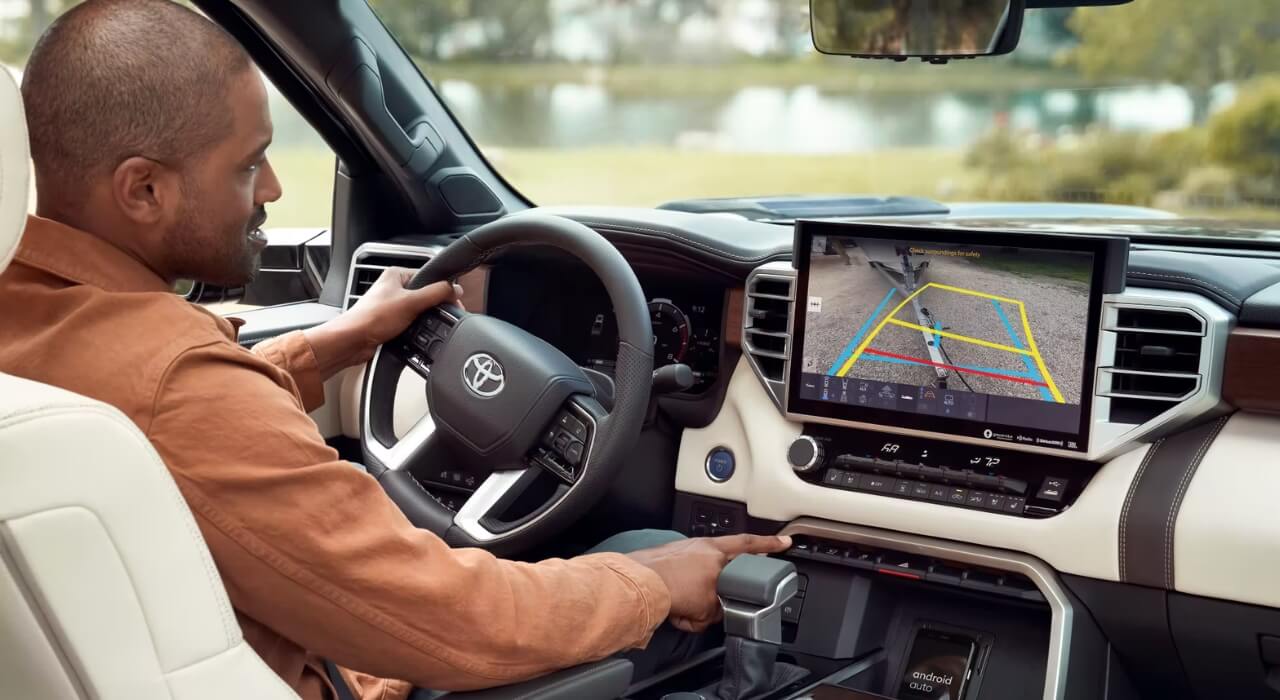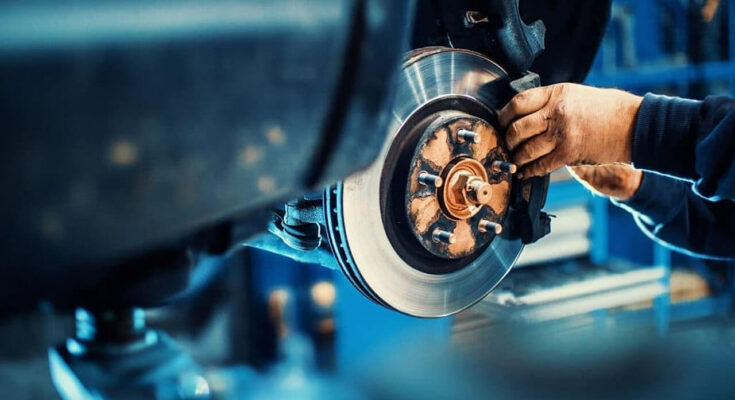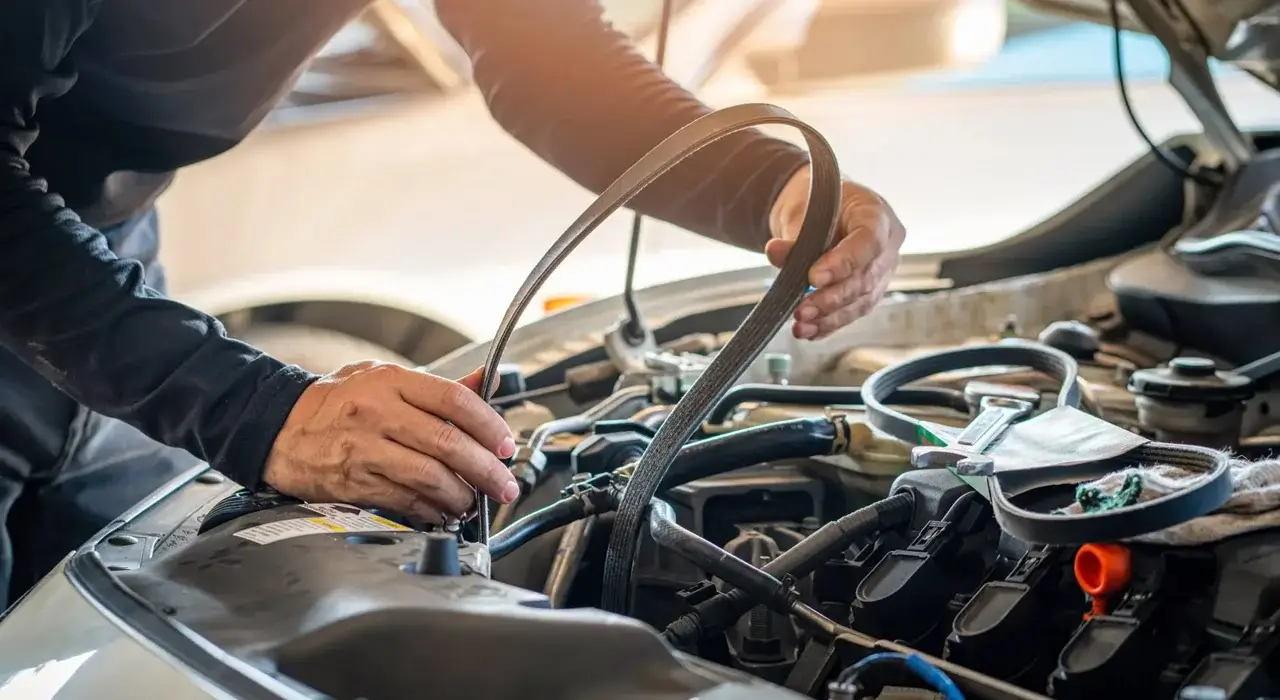Brakes are one of the most critical safety features of any vehicle. Proper brake maintenance is essential not only for your safety but also for the longevity of your vehicle. Neglecting brake maintenance can lead to reduced braking performance, increased stopping distances, and even accidents caused by brake failure.
Understanding Parts of a Brake System
To properly maintain your vehicle’s brakes, it’s essential to understand the various components of the braking system:
- Brake Pads: These are the components that press against the brake rotors to slow down or stop the vehicle. Over time, brake pads wear down and need to be replaced.
- Brake Rotors: Also known as brake discs, rotors are the metal discs that the brake pads press against to create friction and stop the vehicle.
- Calipers: Calipers hold the brake pads and apply pressure to them when you press the brake pedal. They are essential for proper braking performance.
- Brake Lines: These are the metal or rubber hoses that carry brake fluid from the master cylinder to the brake calipers. Inspect them regularly for any signs of damage or leaks.
- Brake Fluid: Brake fluid is a hydraulic fluid that transfers the force from the brake pedal to the brake components. It’s important to keep the brake fluid at the proper level and replace it periodically.
Signs of Brake Wear
Knowing the signs of brake wear is crucial for identifying potential problems before they become serious safety hazards. Some common signs of brake wear include:
- Squealing or grinding noises when braking
- Reduced braking performance or longer stopping distances
- Vibrations or pulsations in the brake pedal or steering wheel
- Dashboard warning lights indicating brake system issues
- Visual inspection of brake pads showing thinning or uneven wear
As brake pads wear down over time, their ability to generate friction against the rotors diminishes, resulting in longer stopping distances and reduced braking effectiveness. Worn-out brakes and brake failure pose significant dangers while driving, potentially leading to devastating injuries from a car accident on the road.
Regular Vehicle Inspections
Regular inspections of your vehicle’s brakes can help catch problems early and prevent costly repairs down the road. Important steps to take for regular brake inspections include:
- Checking the brake pads and rotors for wear and damage. Look for signs of uneven wear, such as grooves or ridges on the rotors.
- Inspecting the brake lines for any signs of leaks, corrosion, or damage.
- Checking the brake fluid level and condition. Top off the brake fluid if necessary and replace it if it appears dirty or contaminated.
- Testing the brake pedal for firmness and responsiveness. If the pedal feels spongy or if there is excessive travel, it could indicate air in the brake lines or a problem with the master cylinder.
Brake Pad Replacement
Brake pads are designed to wear down over time, so it’s important to replace them regularly to maintain proper braking performance. Here are some tips for replacing brake pads:
Suggestion: 2024 Hot Rod Power Tour Announcement Route Map
- Follow the manufacturer’s recommendations for brake pad replacement intervals.
- Use high-quality brake pads that are compatible with your vehicle’s braking system.
- If you’re not comfortable replacing brake pads yourself, have them replaced by a qualified mechanic.
- After replacing the brake pads, be sure to properly bed them in according to the manufacturer’s recommendations to ensure optimal performance and longevity.
Rotor Maintenance
Brake rotors are subjected to a lot of heat and friction during braking, which can cause them to warp or wear unevenly over time. When maintaining brake rotors, be sure to remember the following:
- Inspect the rotors for signs of wear, such as grooves, scoring, or uneven thickness.
- Consider having the rotors resurfaced or replaced if they are heavily worn or damaged.
- When replacing brake pads, always match them with rotors of the appropriate size and specifications.
Brake Fluid Flush
Brake fluid is hygroscopic, which means it absorbs moisture over time. Contaminated brake fluid can lead to corrosion and damage to brake components, so it’s important to flush the brake fluid regularly. Here are some tips for flushing brake fluid:
- Follow the manufacturer’s recommendations for brake fluid replacement intervals.
- Use a high-quality brake fluid that meets or exceeds the specifications for your vehicle.
- If you’re not comfortable flushing the brake fluid yourself, have it done by a qualified mechanic.
Impact of Driving Habits on Brake Maintenance
Your driving habits can have a significant impact on the lifespan of your vehicle’s brakes. To preserve the functioning health of your vehicle’s brakes, remember to:
- Avoid harsh braking whenever possible. Anticipate stops and brake gradually to reduce wear on the brake pads and rotors.
- Use engine braking when descending steep grades instead of riding the brakes.
- Avoid excessive speed, especially in heavy traffic or adverse weather conditions, which can increase the need for sudden stops.
- Keep your vehicle well-maintained, including regular tire rotations and alignments, which can help prevent uneven wear on the brakes.
Overall, proper brake maintenance is essential for the safety and performance of your vehicle. By understanding the various components of the brake system, recognizing signs of brake wear, conducting regular inspections, and practicing good driving habits, you can ensure that your brakes are in optimal condition and ready to perform when you need them most.



















